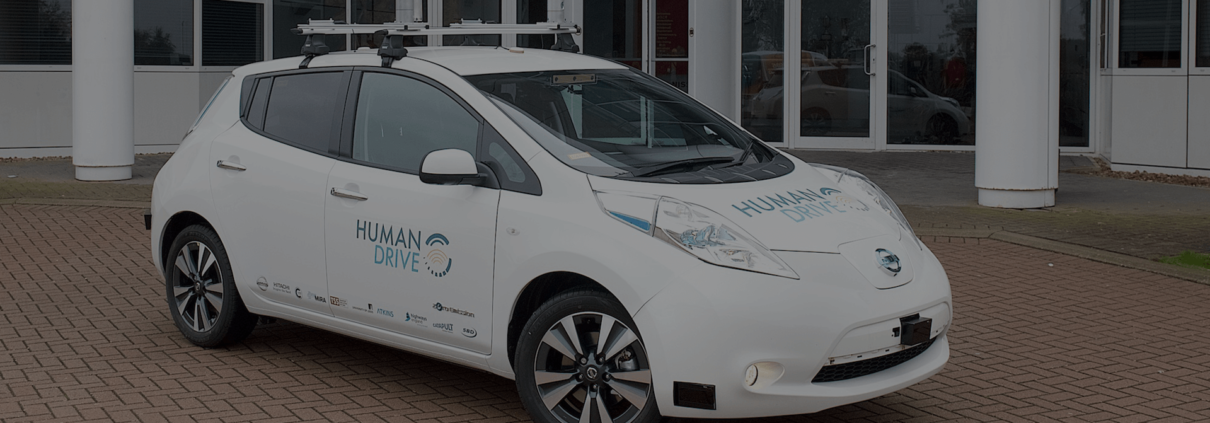Autonomous Car Project seeks to emulate natural human driving in UK driving environment. seeks to emulate natural human driving in UK driving environment.
A 30-month Autonomous Vehicle project led by Nissan’s European Technical Centre, as a part of Renault-Nissan Alliance research activities, will culminate in the most complex journey yet attempted across the UK without driver input. The ‘HumanDrive’ project vehicle will be expected to deal with a variety of UK unique driving scenarios, including country roads, high speed roundabouts, A-Roads, Motorways in live traffic and different environmental conditions. Additionally, the vehicle will emulate a natural human driving style, providing an enhanced experience for the occupants.
To achieve this, the project will draw upon the expertise of a variety of organisations, including the tech giant Hitachi and Transport Systems Catapult, who oversaw the first UK test of a driverless vehicle in a public space in 2016. Other partners include Cranfield University, University of Leeds, HORIBA MIRA, Atkins, Aimsun Ltd, SBD Automotive and Highways England.
The HumanDrive project will seek to take autonomous technology to the next level in terms of ride comfort and adaptability, covering a number of different UK road scenes with natural road positioning.
Greg Clark, Business and Energy Secretary, said:
“Low carbon and self-driving vehicles are the future and they are going to drive forward a global revolution in mobility. This revolution has the potential to be worth £52bn to our economy by 2035 and the opportunity to be at the forefront of this change is one we cannot afford to miss.
“Through our Industrial Strategy and the Automotive Sector Deal investment in the development of driverless technology we are committed to working with industry to seize these opportunities. Trailblazing projects like the HumanDrive project will play a vital role helping us deliver on that ambition, with UK businesses and research institutions working with partners from around the world on the disruptive technologies and services of the future.”
The artificial driver model (controlling perception and decision making) will pilot the vehicle, and will be developed using the latest artificial intelligence technologies. Before being introduced to UK roads, the system will be developed and subjected to robust testing using a range of facilities, including simulation, hardware in the loop, private test track and small sections of public roads.
Mark Westwood, Transport Systems Catapult Chief Technology Officer, said:
“This pioneering project will considerably enhance the experience of drivers who use future autonomous vehicles. We’ve only just scratched the surface in terms of the capability of machine learning and AI in driving. The HumanDrive project further reinforces the UK’s commitment to be at the forefront of future mobility, and as a world leader in R&D. We are delighted to be working with world-class partners on this project to ensure autonomous vehicle technology provides users with the utmost comfort and control possible.”
Paul Gadd, Head of Automotive at Innovate UK, said:
“This is a significant next step in the testing and development of driverless car technologies and highlights how the UK is at the forefront of automotive innovation. The HumanDrive project is a great example of the dynamic collaboration of businesses and organisations supported by the Intelligent Mobility fund.”
HumanDrive is jointly funded by government and industry. The government’s £100m Intelligent Mobility fund is administered by the Centre for Connected and Autonomous Vehicles (CCAV) and delivered by the UK’s innovation agency, Innovate UK.
You can stay up to date with the project at www.HumanDrive.co.uk











